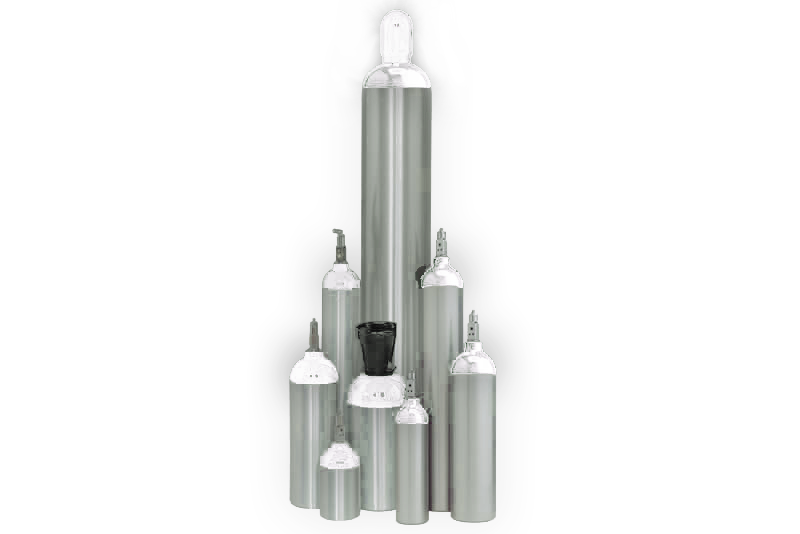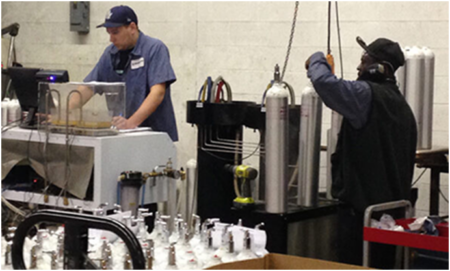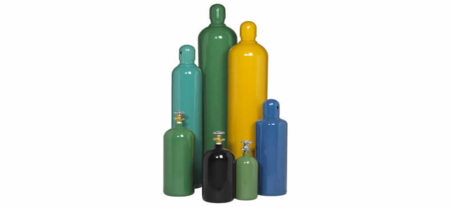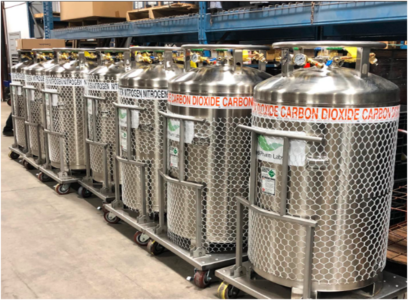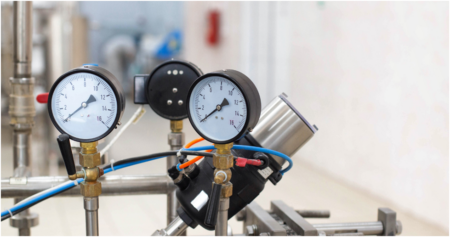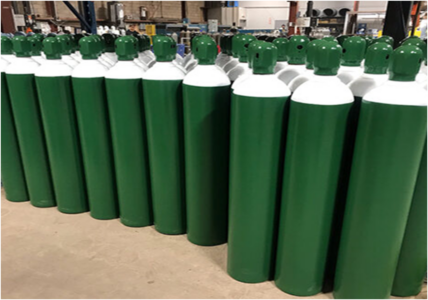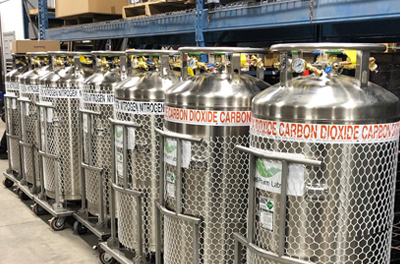In healthcare, medical cylinders provide essential gases such as oxygen, nitrous oxide, and compressed air for various medical uses. These cylinders must be handled will be careful with storage so as not impair gas purity. These cylinders must be handled and kept appropriately to ensure security and gas purity. Certified Cylinder Services Inc. is most concerned about safety and would like to explain the correct ways to use medical cylinders.
Understanding the Risks
Medical cylinders are pressurized containers, posing significant risks if not handled correctly. The primary hazards associated with medical cylinders include:
- Hazards of explosion or fire: Because of their high-pressure contents, cylinders can explode if damaged or mishandled.
- Suffocation: Asphyxia can occur when leaks cause oxygen in the air to be displaceable.
- Contamination: Patients may be harmed by medical gases that are improperly stored.
To lower these risks, strict adherence to safety protocols is essential.
Handling Medical Cylinders
Proper Training: Ensure that all personnel handling medical cylinders are adequately trained. This training should cover:
- Correct methods for lifting and transporting cylinders
- Recognizing different types of cylinders and their specific requirements
- Emergency procedures in case of leaks or other incidents
Use Appropriate Equipment: Always use carts or trolleys designed for cylinder transport when moving cylinders. These should have:
- Securing straps or chains to prevent cylinders from falling
- Smooth-rolling wheels to minimize jolts and vibrations
Avoid Dropping or Striking: Medical cylinders should never be dropped or struck. Handle them gently to avoid damaging the valve or the cylinder body, which could lead to dangerous leaks.
Secure Cylinders: When not used, ensure cylinders are secured upright using a suitable stand or chained to a wall bracket. This prevents them from falling over and getting damaged.
Check for Leaks: Before using a cylinder, perform a leak test. Rinse the valve and connections with a soapy water solution; bubbles suggest a leak that must be fixed immediately.
Storing Medical Cylinders
Designated Storage Area: Cylinders should be kept from the direct sun and other heat sources in a clean, dry, and well-ventilated space. The storage area should be:
- Clearly labeled and restricted to authorized personnel only
- Free from combustible materials and chemicals
Temperature Control: Medical gases can be sensitive to temperature fluctuations. Keep the storage area’s temperature steady, ideally between 20°C and 25°C (68°F and 77°F).
Segregation: Store different types of gases separately. Oxygen cylinders should be stored with a non-combustible barrier at least five feet high and a fire-resistance rating of at least thirty minutes or twenty feet away from flammable gases or materials.
Inventory Management: Establish a reliable inventory management system to monitor cylinder use and guarantee that older cylinders are used first. Regularly inspect cylinders for signs of wear, damage, or corrosion.
Emergency Preparedness: Equip the storage area with appropriate fire extinguishers and ensure that emergency exits are easily accessible. Conduct regular safety drills and ensure all staff are familiar with emergency procedures.
Regular Maintenance and Inspection
Daily Inspection: Periodically inspect all cylinders, valves, and regulators conspicuously for signs of damage or wear. As soon as any faulty equipment is found, replace it.
Professionally Serviced: Have the cylinder serviced and tested by professionals certified by the manufacturer’s or regulation requirements. This includes hydrostatic testing and visual inspections.
Appropriate records: Each cylinder’s history is recorded. This way, the safety regulations of every place on earth can be met. It also simplifies a great deal of work for everybody by doing everything in just one operation and not placing any burden upon any one person.
Adhering to these safety guidelines can significantly decrease the risks of handling and storing medical cylinders. Certified Cylinder Services Inc. aims to deliver the best possible safety and quality standards. Please contact us if you have any questions or need professional assistance with your medical cylinders. Your safety is our priority.
Stay safe and ensure the well-being of both your healthcare providers and patients by adhering to these guidelines.



